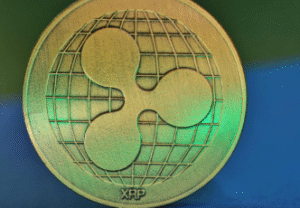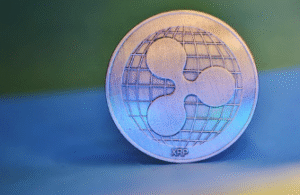#Robinhood #stablecoin #crypto #Tether #digitalassets #cryptoregulation #MiCA #cryptocurrencies #blockchain #financialtechnology
Robinhood, the American brokerage firm known for revolutionizing the stock market with its zero-commission approach, is extending its innovative streak into the realm of cryptocurrencies, potentially challenging the hegemony of the established stablecoin, Tether. According to reports from Bloomberg, Robinhood is contemplating the idea of launching its own stablecoins, although the company’s spokesperson has played down the immediacy of such plans. This news comes as part of Robinhood’s broader strategy to diversify and deepen its engagement with digital assets. Already a significant player in the crypto space, Robinhood reported a substantial increase in its crypto transactions revenue, which doubled to $81 million in the second quarter of 2024, constituting a sizeable chunk of its total transaction-based revenue of $327 million. Robinhood’s commitment to cryptocurrencies isn’t new; the platform has facilitated crypto trading for its American users for years and has recently expanded its crypto offerings in Europe, including the introduction of staking services and making the app available in multiple European languages.
Robinhood’s flirtation with the stablecoin market is seen as a strategic move to establish a foothold in a lucrative but increasingly regulated space. The company’s interest coincides with the rollout of the Markets in Crypto-Assets Regulation (MiCA) across the European Union, a comprehensive framework aiming to bring clarity and security to the crypto market in the bloc. MiCA’s introduction has placed restrictions on the circulation of unregulated stablecoins, forcing many crypto enterprises to revise their offerings to comply with the new rules. By throwing its hat into the ring, Robinhood aims not only to challenge existing giants like Tether but also to position itself as a compliant and innovative actor within the European market, offering stablecoins that meet MiCA’s stringent requirements.
Stablecoins offer a beacon of stability in the notoriously volatile cryptocurrency market by being pegged to fiat currencies or other stable assets, thereby mitigating the unpredictability commonly associated with digital currencies like Bitcoin. This inherent stability has made them particularly appealing to conventional financial institutions that remain skeptical of cryptos but are willing to embrace the underlying blockchain technology for its benefits in facilitating transactions and settlements. As Tether’s market dominance begins to waver—their market cap stands at $120 billion, with competitors like USDC and PayPal’s stablecoin rapidly gaining ground—new entrants like Robinhood see an opportunity to innovate and potentially disrupt the $170 billion stablecoin industry.
However, Robinhood is not alone in this venture. Revolut, another fintech giant, is also rumored to be considering entering the stablecoin market, albeit without any formal announcement to date. As these tech-forward companies vie for a slice of the stablecoin pie, the competition is set to intensify, promising intriguing developments for the crypto industry. Robinhood’s potential foray into stablecoins reflects a broader trend of financial technology companies diversifying their crypto product offerings to include more regulated and stable digital assets, a strategy that might not only challenge incumbents like Tether but also redefine the landscape of digital finance.







Comments are closed.